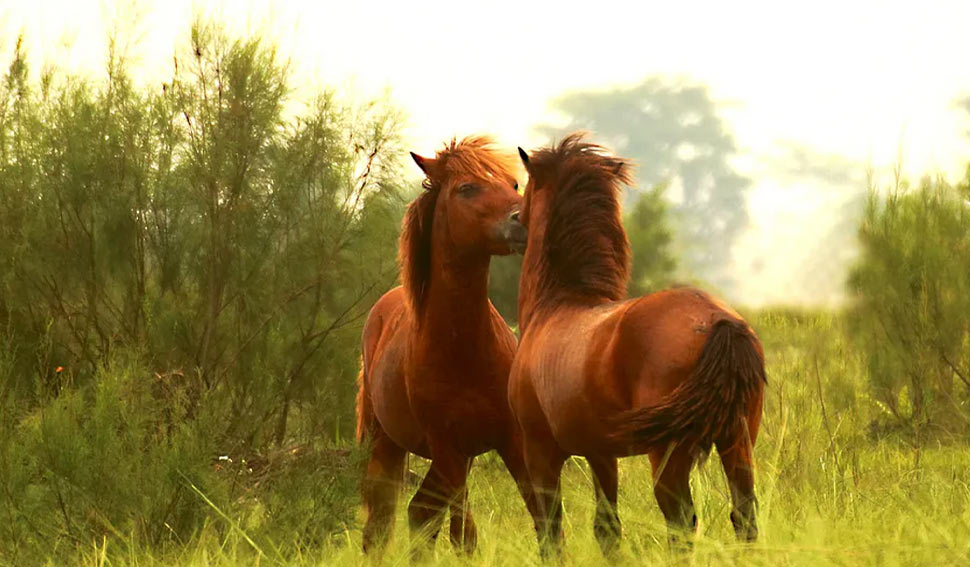NGT issues notice to Centre, state on declining feral horse population in Dibru-Saikhowa National Park

The National Green Tribunal (NGT) has issued notice to the Centre, Assam government and other stakeholders over the critically endangered status of the feral horses in Assam’s Dibru-Saikhowa National Park.
In an order passed on December 16 in a suo motu case, an NGT bench led by Chairperson Justice Prakash Shrivastava and expert member A Senthil Vel expressed grave concern that the “unique” feral horses, found only in Dibru-Saikhowa, were on the brink of extinction and required “urgent intervention.”
The NGT took cognizance of a media report that highlighted the declining population of these horses due to a combination of factors including smuggling, habitat loss, shrinking grazing fields, recurring floods, and neglect by conservation authorities.
The report claims that the feral horses have survived in the wild for approximately 80 years. While some theories suggest that they are descendants of World War II war horses, others speculate that they may have links to China’s Przewalski’s horses.
The report pointed out that since feral horses are not covered under the Wildlife Protection Act, 1972, they are not legally recognized as wild animals. This makes convictions difficult even when smuggling attempts are intercepted. In 2020, authorities allegedly stopped a truck attempting to smuggle six feral horses.
The report also stated that there has been no regular census, making it difficult to ascertain the current population and conservation status of the horses.
It also stated that frequent flooding of the Brahmaputra River not only damages grazing grounds but also accelerates erosion in the park, shrinking the horses’ habitat further.
The report further stated that decreasing biodiversity limits the availability of food within their ecosystem.
It also pointed out that encroachment, cattle farming, and other activities from nearby forest villages further degrade the horses’ natural habitat.
The tribunal observed that the situation indicates a violation of the provisions of the Biodiversity Act, 2002, and the Environment Protection Act, 1986. It also underscored non-compliance with environmental norms and scheduled enactments.
Referring to the lack of legal recognition under the Wildlife Protection Act and the absence of census data, the NGT highlighted the challenges in monitoring and protecting the feral horse population.
The tribunal has impleaded the following as respondents in the case- Secretary, Ministry of Environment, Forest, and Climate Change; National Biodiversity Authority, Director, Zoological Survey of India; Director, Wildlife Institute of India and Chief Wildlife Warden, Assam.
“Issue notice to the above respondents for filing their response/reply by way of affidavit before the eastern zonal bench of the tribunal (in Kolkata),” the bench stated.
The matter has been scheduled for hearing on February 27, 2024.
“Since the matter relates to the Eastern Zonal Bench, Kolkata, therefore, OA is transferred to the Eastern Zonal Bench. The original record of this OA be also transferred to the Eastern Zonal Bench, Kolkata for further action,” the Tribunal added.

Leave a Reply